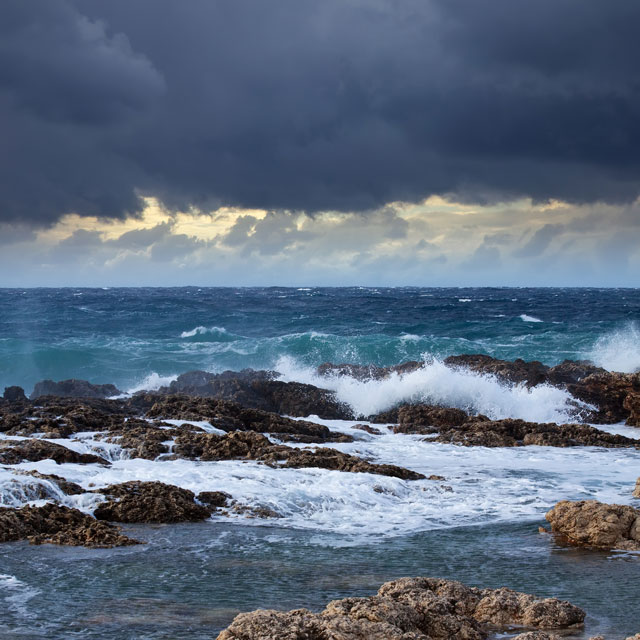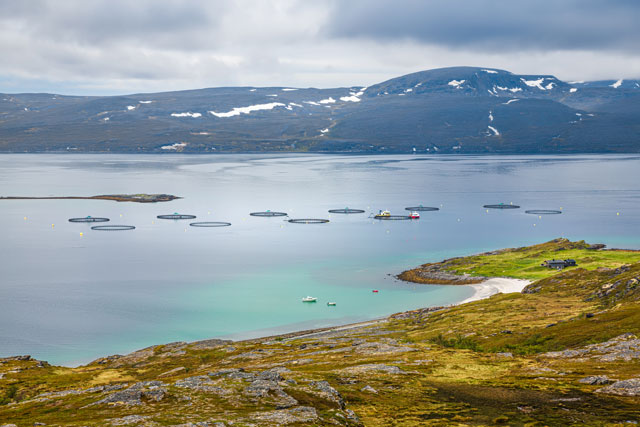
Norway Places Marine Ecosystems at the Heart of Plans for a Sustainable Ocean Economy
Sustainable Ocean Plan
Norway, co-chair of the Ocean Panel, with its extensive coastline and deep maritime heritage, is intimately connected to the ocean. The country’s economic prosperity and cultural identity have been shaped by its sustainable management of marine resources and its commitment to safeguarding the health and biodiversity of ocean ecosystems.
The Government of Norway’s Sustainable Ocean Plan places a strong focus on integrative and ecosystem-based approaches to achieve 100% sustainable ocean management. Norway prioritises combining sustainable production from the sea with the protection of marine ecosystems including their structure, function, productivity, and diversity.
Since 2002, Norway has developed “Integrated Ocean Management Plans for the Norwegian Sea Areas” presented as white papers to the Norwegian Parliament. The purpose of the management plans is to provide a framework for value creation through the sustainable use of marine natural resources and ecosystem services, while preserving the ecosystems’ structure, functioning, productivity and diversity. The management plans are updated regularly and encourage closer coordination among relevant authorities and clear priorities for Norway’s marine areas. They increase predictability and facilitate between industries that use the marine areas and their natural resources. Since the launch of the Ocean Panel, the management plans were updated in 2020, when one white paper brought the management plans for Norway’s three ocean areas together for the first time to achieve 100% sustainable ocean management. Activities in each management plan are regulated based on existing legislation governing different sectors. The various sectoral authorities are responsible for implementing the measures set out in the management plans, under relevant legislation that they administer.
The country will launch their ‘Integrated Sustainable Ocean Plan’ in 2024, which takes an ‘integrative and ecosystem-based approach’ to ocean management. The Norwegian government determined that the next Norwegian integrated ocean management plan to be presented at parliament will constitute Norway’s Sustainable Ocean Plan.
The Plan will be updated every four years, integrating new knowledge, and addressing new challenges. This approach supports the need for a holistic and “whole of government” approach for the integration of economic and environmental considerations to advance a sustainable ocean economy.

Positive impacts
Norway’s ocean management plan system takes an integrative and ecosystem-based approach to ocean management. Ecosystem services are a vital basis for long-term value creation. They combine sustainable use of rich, productive ecosystems and the ecosystem services they provide, and at the same time the protection and conservation of the ecosystems.
People are a critical part of ecosystems. Decisions on ocean management and marine ecosystem management are made using an updated compilation of available scientific knowledge as the basis, while evaluating the cumulative effects of human activities on the marine environment. As a result, management of the ocean is aimed at keeping the total of all uses within sustainable limits, and to maintain the natural functions of ecosystems and ecosystem services.
Further, Norway’s ocean management plans are also integrated by bringing together all relevant parts of public administration both on the scientific (expert advice), relevant authority, agency and government level (policy). This approach has played a pivotal role in fostering broader, open and trusted cooperation between different parts of government, agencies and research institutions. This is supported by further development of data and knowledge sharing, as well as the involvement of stakeholders.
The stakeholders engaging in the integrated management process include ocean industries’ associations, labour organisations, environmental non-governmental organisations (NGOs) and local communities. The actively contributing stakeholders are mainly the fishing industry, offshore oil and gas industry, renewable energy, aquaculture, shipping, and the environmental NGOs. Stakeholders are engaged in public hearings, meetings, and written inputs to the factual basis or to suggest measures for integrated ocean management plans. Many organisations and academic institutions are also engaging in the public debate on ocean issues.

Expected benefits
Norway’s Sustainable Ocean Plan intends to:
- Unlock the potential for further sustainable job creation and value creation in the ocean industries.
- Maintain the value, functions and productivity of marine and coastal ecosystems, safeguard the ocean as a source of food and facilitate sustainable use of ocean resources.
- Boost research and technological development, including through the exchange of knowledge and technology, across ocean sectors.
Challenges
When developing their integrated sustainable ocean plan, the Norwegian government faced one key challenge: establishing a process that ensures long-term commitment and participation from all relevant stakeholders involved in creating the plan.
The key was to create a structure where stakeholders are motivated to actively share their knowledge and perspectives, while also giving them sufficient opportunity to directly influence the final policy outcomes. This meant finding ways to incentivize continued engagement from diverse groups, providing them with real avenues to shape the plan based on their priorities and insights. By putting in place an inclusive development process with transparency and stakeholder empowerment at its core, the likelihood of securing ongoing, meaningful contributions from across sectors could be greatly increased.
Guidance for other countries
Developing Norway’s Sustainable Ocean Plan (SOP) entails two crucial components.
Firstly, it involves building upon broad stakeholder involvement and cultivating ownership and commitment across various ministries and agencies.
Secondly, the plan is founded on comprehensive scientific knowledge, allowing progress to be made based on the available knowledge within the specific context of the country.
Contact details
www.havforum.no
Meld. St. 20 (2019–2020) – regjeringen.no
Norwegian SOP Focal Point: Per W. Schive, Ministry of Climate and Environment
pws@kld.dep.no



 Previous
Previous